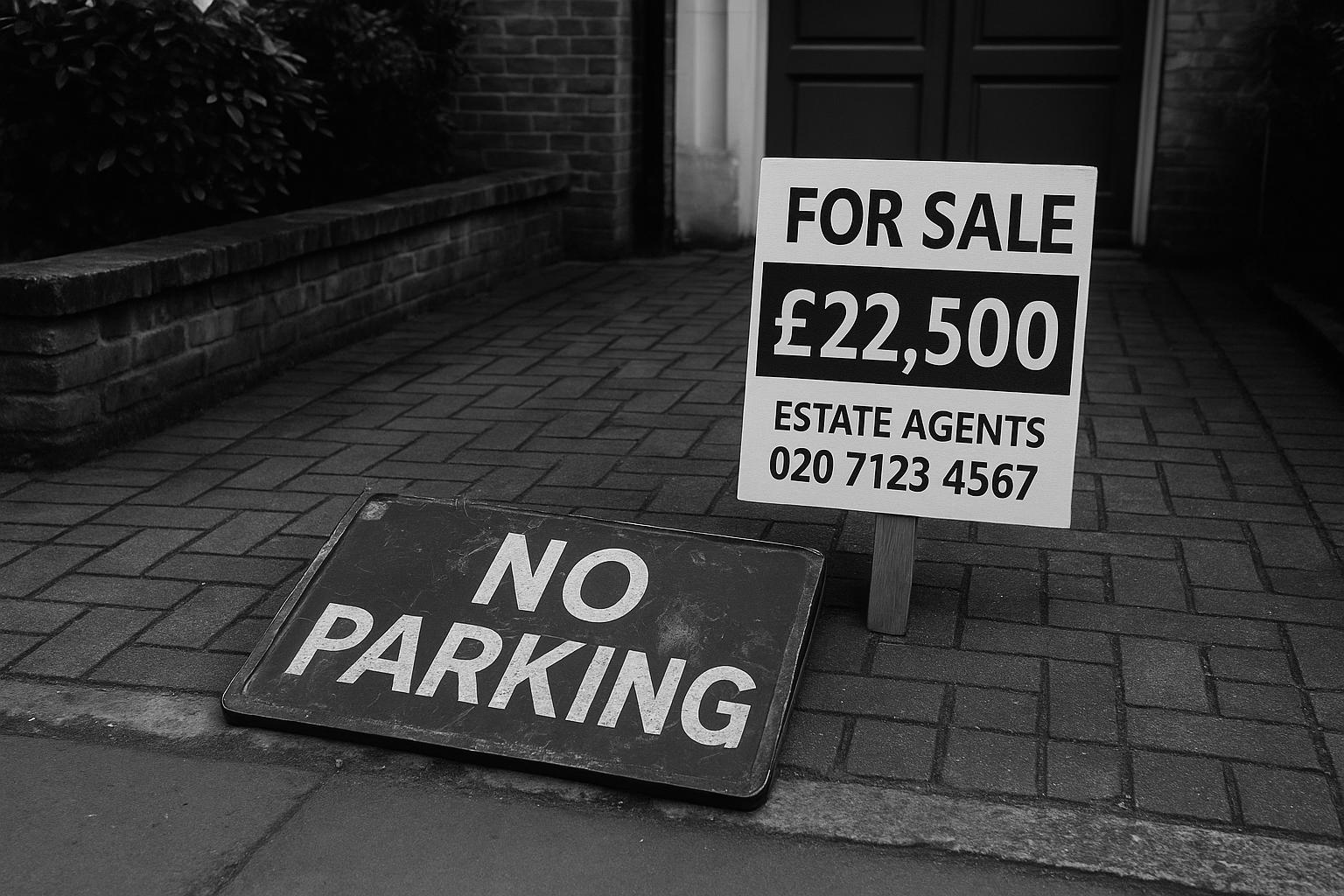A parking space on a homeowner's driveway in Wimbledon, southwest London, is being offered for sale at £22,500. The gravel driveway is situated between a metal gate and the front of a semi-detached house in a quiet cul-de-sac. Advertised as secure parking within walking distance of Wimbledon mainline station, Wimbledon town, and the village, the seller has termed the price "realistic" and is hoping for a quick sale. The freehold space lies adjacent to the homeowner’s wheelie bins and is enclosed within a gated garden featuring a hedge and a bench. According to recent data from Rightmove, the average price of a home in Wimbledon stands at £838,429, highlighting the significant value attributed even to individual parking spaces in the area. This is particularly notable given that daily parking near Wimbledon station costs £11.80, or £47 weekly, suggesting that purchasing a private spot might appeal to those seeking longer-term security or convenience.
In a developing trend seen beyond London, Cardiff is poised to become the first UK city to introduce higher parking charges specifically targeting larger vehicles such as sports utility vehicles (SUVs) weighing over 2,400 kilograms. This measure, recently approved by Cardiff Council’s cabinet, is part of a broader attempt to reduce congestion, improve air quality, and address road safety concerns. The council’s initiative, referred to in media reports as the introduction of a "Land Rover tax," aims to discourage the use of heavy vehicles that contribute to more wear and tear on roads, produce higher emissions, and pose greater risks in collisions. Council spokespersons emphasised that the proposed fee increases would remain relatively small compared to the cost of purchasing such vehicles.
The policy also includes scrapping resident permits in Cardiff city centre and reducing permits issued to students, reflecting a comprehensive overhaul of the city’s parking system. This follows public consultations, which revealed two-thirds of respondents supported charging SUV owners more for parking permits. The council has indicated the plan to potentially lower the weight threshold for surcharges to 2,000 kilograms in the future for non-electric vehicles. While exact surcharge amounts have yet to be announced, current annual parking permit costs stand at £35 for the first car and £90 for a second vehicle, setting a baseline for the additional fees.
The move has been met with some criticism. Former Welsh Conservative leader Andrew RT Davies described it as "unduly penalising" drivers of larger vehicles, highlighting political and social tensions emerging around urban transport policies. Meanwhile, council members frame the initiative as a necessary step to ensure streets work better for local communities and to tackle the phenomenon of "carspreading," where larger vehicles occupy excessive space and limit parking availability.
Together, these developments in Wimbledon and Cardiff reflect a broader shift in urban mobility and property valuation. In London, the growing demand and high property prices are pushing the value of even small parcels of private parking space to unprecedented levels. In contrast, Cardiff’s experimental approach to parking fees for larger vehicles might signal a new phase in city planning, where environmental and safety concerns are increasingly influencing everyday logistics for motorists.
📌 Reference Map:
- Paragraph 1 – [1], [2]
- Paragraph 2 – [1], [3], [4], [5], [6], [7]
- Paragraph 3 – [1], [3], [4], [5], [6], [7]
Source: Noah Wire Services
